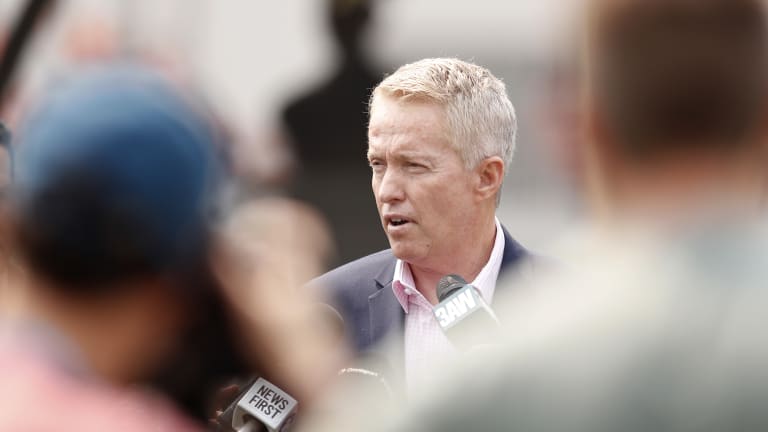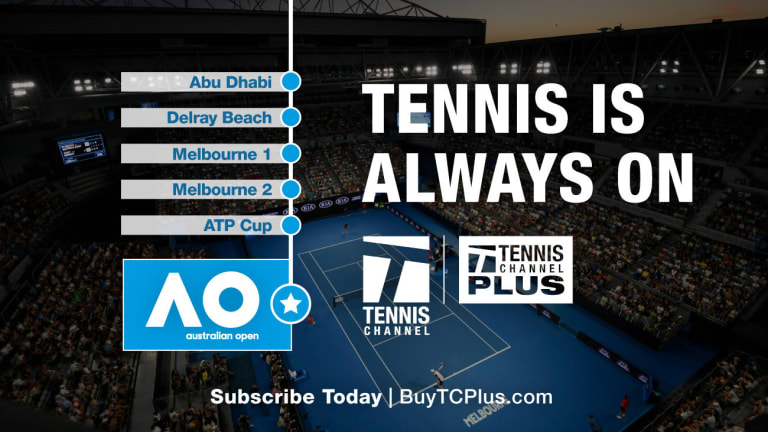Craig Tiley, speaking to reporters regarding the nearby bushfires before the 2020 Australian Open. (Getty Images)
Time and again, Tiley has shown that he will let nothing get in the way of his imperial ambitions for Tennis Australia and its premier tournament. His outfit dodged a giant bullet last year during the bushfires, when Tiley chose to ignore the universally embraced Air Quality Index—and pleas from players—and insisted that the daily decision about whether or not to play at Melbourne Park would be based on the advice, in Tiley’s own words, of “meteorological and air-quality experts onsite.”
Fortunately for Tiley and Co., a change in wind direction and temperature reduced the pollution to acceptable levels once the event was underway.
The plan to bring players and support staff who had been cleared by Covid testers to Melbourne for the delayed 2021 Australian Open (due now to start Feb. 8) via chartered flights turned out to be not so infallible. A number of passengers ultimately tested positive for Covid-19 upon arrival. and as a result more than 70 players, including stars Victoria Azarenka, Sloane Stephens and Roberto Bautista Agut, were ordered to remain confined in their hotel rooms for a 14-day quarantine period.
Bautista Agut told Israeli television channel Sport 5 that his hotel room felt like a prison, but with Wi-Fi. He added, “These people have no idea about tennis, about practice courts, no idea about anything. It’s a complete disaster because of that, because of the control of everything.”
It’s easy to understand the frustration expressed by Bautista Agut and others (under fire on social media, he walked back his comments a few days later with the familiar claim that his words were “taken out of context”). But such comments coming from tennis stars inevitably led to a backlash. Melbournians, and others, who had endured long lockdowns and the various ravages of the pandemic accused the pros of embodying entitlement. Somehow, their complaints about lockdown, lousy hotel food, and a lack of the promised training facilities for the lucky ones who avoided mandated and totalisolation did not generate waves of sympathy. After all, first-round losers in singles at the Australian Open will earn $100,000.
Charges of excessive favoritism shown to the game’s major stars also came bubbling to the surface when their peers learned that Nadal, Serena Williams, Naomi Osaka and Novak Djokovic (among others) were flown to Adelaide, where they were free to practice, theoretically under “bio-secure protocols.”
A video posted and since removed on social media by Osaka featured her entire four-person team at a practice site. None, including Osaka, was wearing a mask. Soon after his own arrival, Djokovic penned a letter to Tennis Australia asking, among things, that players be provided “decent food,” fitness and training materials in all rooms, and private houses with tennis courts in Melbourne for as many players as possible.
Like Bautista Agut, Djokovic followed up on social media, saying his intentions “have been misconstrued.”

